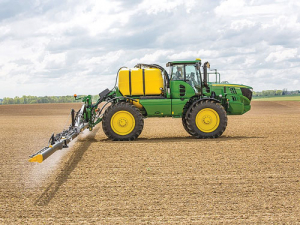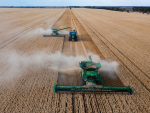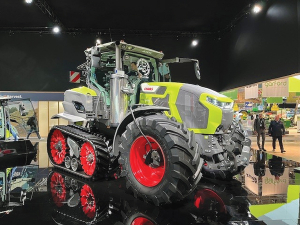John Deere's Horst factory in the Netherlands has a history of plant protection, designing and manufacturing crop sprayers for at least 70 years.
Purchased by JD in 1997 from the Dutch maker Douven, the global powerhouse has just hit a milestone by producing the 1000th self-propelled unit, in the shape of a 4000L capacity R4040i machine.
Having taken nine years to achieve this, they knocked a year off when they celebrated in 2016 the production of 10,000 trailed sprayers.
The 1000th self-propelled unit, complete with symbolic gold key, will be delivered to a 1800ha family farm in the Czech Republic owned by the Lukas brothers.
Meanwhile, a little further west in Europe, John Deere’s exclusive partner for the production of carbon-fibre spray booms, King Agro, has opened a new factory in Valencia, Spain.
Dedicated to the production of booms for the JD 4000 series machines, the Euro 8 million investment covers 5500 sq. m, employs 100 people and will produce up to 1800 booms each year.
The company aims to change the paradigm of steel in agricultural machinery manufacturing, by using instead carbon fibre, which lowers costs, increases productivity and reduces soil compaction.
www.JohnDeere.com.au











